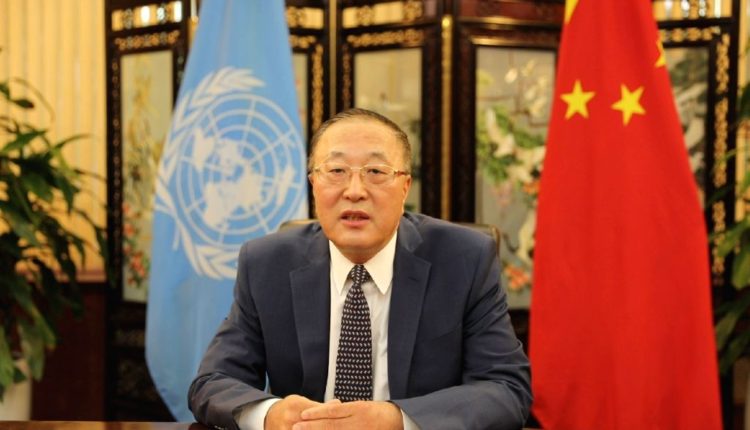Stop meddling in China’s affairs, 69 countries tell UNHRC
Chinese envoy bewails ‘politicization’ of human rights by the West
VERBAL fireworks are immediately on display as the United Nations Human Rights Committee (UNHRC) opened its 50th session in Geneva, Switzerland on Monday, June 13, 2022, with Cuba and 68 other countries telling the West to stop meddling in China’s internal affairs over the issue of human rights.
In the following day’s session (June 14, 2022) Lisandra Astiasaran Arias, counsellor of Cuba’s permanent mission to the UN office in Geneva, read the joint statement of some 69 third world countries and pointed out that respect for the sovereignty, independence and territorial integrity of all countries and non-interference in the internal affairs of sovereign states are the basic norms governing international relations.
All parties should abide by the purposes and principles of the UN Charter, and uphold the principles of universality, impartiality, objectivity and non-selectivity, Arias said further.
The joint statement read by Cuba was a response to a statement by the Netherlands, the United States and its other Western minions in which they voiced their “grave concerns” about the human rights situation in China’s Xinjiang Uygur Autonomous Region.
But Arias countered that all parties should also respect the right of people of different countries to choose their own path of development in light of their own national conditions and attach equal importance to all kinds of human rights, especially the economic, social and cultural rights and the right to development.
In the face of multiple challenges, including the COVID-19 pandemic, the international community should adhere to multilateralism and strengthen solidarity and collaboration to jointly address the global challenges, promote world peace and development, and advance and protect human rights, according to the Cuban envoy.
For more than 50 years now, Cuba’s sovereign rights are being violated daily by the United States thru sanctions and the occupation of its own territory in Guantanamo Bay, after it defeated an American-sponsored invasion in 1961, two years after the success of the ‘Cuban Revolution’ when they kicked out US-supported dictator, Fulgencio Batista on New Year’s Day, 1959.
Chen Xu, China’s permanent representative to Geneva, for his part, noted that the UNHRC has “become increasingly politicized and confrontational, and disinformation has become rampant, which seriously runs counter to the original purpose of the Human Rights Council.”
Chen said that all parties should promote multilateralism in the field of human rights, uphold the principles of universality, impartiality, objectivity, non-selectivity and non-politicization, and jointly promote the sound development of the international human rights cause.
For more than 50 years now, Cuba’s sovereign rights are being violated daily by the United States thru sanctions and the occupation of its own territory in Guantanamo Bay, after it defeated an American-sponsored invasion in 1961, two years after the success of the ‘Cuban Revolution’ when they kicked out US-supported dictator, Fulgencio Batista on New Year’s Day, 1959.
“Multilateral human rights mechanisms should abide by the purposes and principles of the Charter of the United Nations, promote the common values of humanity, and oppose the politicization and instrumentalization of human rights issues, double standards, as well as interference in the internal affairs of member states under the pretext of human rights,” he noted.
He added that solidarity needs to be strengthened, while constructive dialogue and cooperation be carried out on the basis of equality and mutual respect.
“We should make efforts to expand common understanding, reduce differences, promote mutual learning and seek progress together,” he said.
He told the council that multilateral human rights mechanisms also need to work on the basis of authentic and objective information, respect the sovereignty of states and the human rights development path chosen by each country in light of its national conditions, and provide technical assistance with the consent of the countries concerned.
“The staff composition of multilateral human rights mechanisms should reflect the principle of equitable geographical distribution, and absorb more talents from developing countries, so as to make multilateral human rights mechanisms truly representative,” he added.
The session, which will run through July 8, 2022, was opened by High Commissioner Michelle Bachelet, who also informed the body that she is not seeking another four-year term (credit to CGTN reports).



